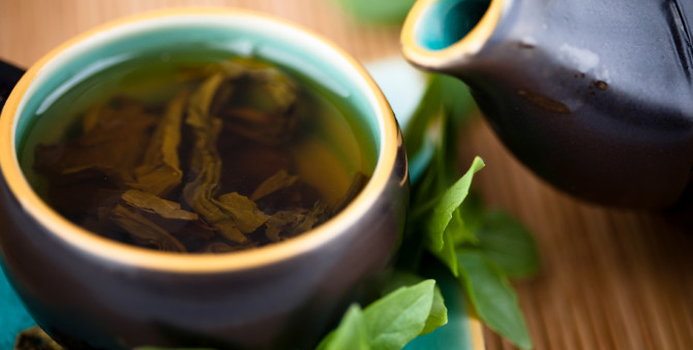White tea is a form of tea that is usually made with buds; in some instances, however, it can also be made from simply younger leaves that have been dried either by being left out in the sun or by steaming. Something that white tea has in common with green tea is that it is also not an oxidized tea. White tea comes from the plant called Camellia sinensis, which is also the plant that can be used to make oolong tea, green tea and even black tea. Green tea is getting more popular in the West, which is a change from the way things used to be, when black tea was exclusively favored.
White Tea
The Chinese province of Fujian is proud to call white tea its specialty, and white tea comes in a number of varieties. There is silver needle, white peony, tribute, life eyebrow, Darjeeling white, ceylon white, African white and even Assam white. An aspect of the popularity of white tea, at least in China, is its close relationship to some health benefits that it offers. Among the diseases that scientific research shows it to prevent include rheumatoid arthritis, heart disease, some forms of cancer, and even the impeding of the breakdown of collagen and elastin. This last item relates to the visible effects of aging, such as developing sagging skin and wrinkles. Its potential benefits in preventing these diseases relate to the antioxidant, anti-collagenase, anti-elastase and anti-inflammatory properties that it possesses. Because of the flimsy nature of the white tea bud, when brewing, it is often steeped with water at temperatures of between 65 and 80 degrees Celsius.
Green Tea
Green tea originated in China and it has expanded considerably all throughout Asia, with a penetration into the West in recent years, too. Green tea has become so well known in the West that even popular franchises like Starbucks offer Frappuccinos that play off of the general flavor of green tea. The tea itself is probably popular due to the many health benefits it has, both purported and real, and which have been the subject of many research studies. Studies have established that green tea intake can reduce your risk of heart disease as well as have benefits in the fight against both Parkinson's disease and Alzheimer's disease. For women, research has also shown a link between green tea drinking and a lower incidence of breast cancer.
Which Is Better?
While both white tea and green tea come from the same plant and have health benefits, that's where the similarities end. If drinking tea is a way for you to try to get more health benefits, you ought to focus more on green tea. Though white tea has its own health benefits, they are not as plentiful as those of green tea. In numerous studies comparing the two teas, green tea has been shown to possess properties that reduce cardiovascular risk as well as being conducive to weight loss, while white tea hasn't.



